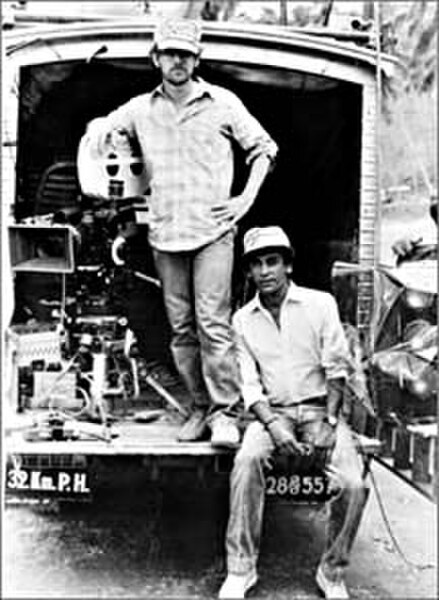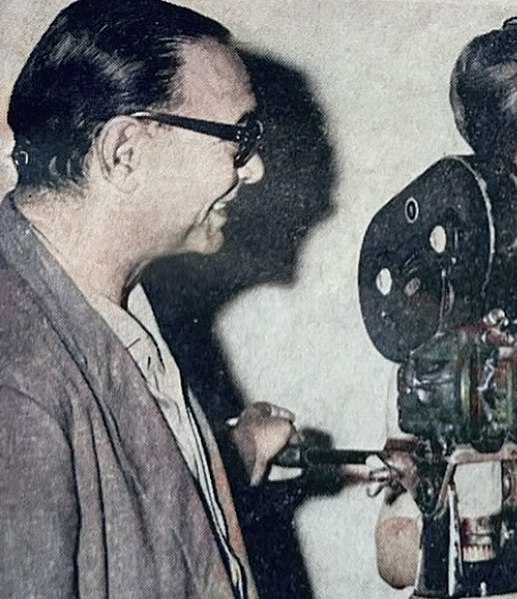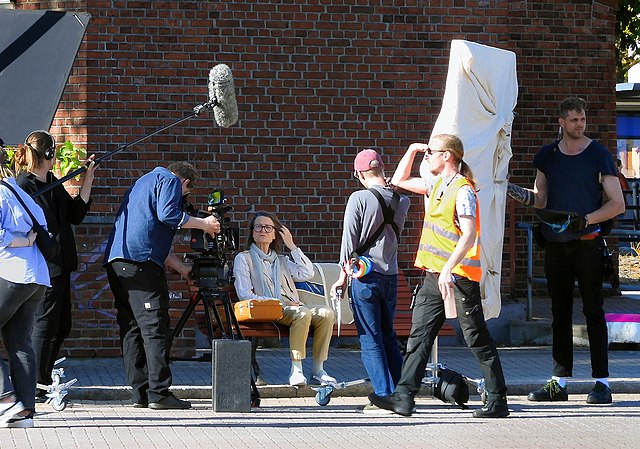A boom operator is a core role in the sound department of a film production, who works with the production sound mixer and utility sound technician. The principal responsibility of the boom operator is microphone placement, usually using a boom pole with a microphone attached to the end, their aim being to hold the microphone as close to the actors or action as possible without allowing the microphone or boom pole to enter the camera's frame.
a boom operator onboard a JL Fisher camera dolly with boom pole fully extended
A one-man band boom operator/recordist holding a boom pole
A "dead wombat" or "dead cat" (left) and "dead kitten" (right) wind-attenuating microphone covers
Video production at South Carlsbad State Beach, California
Filmmaking or film production is the process by which a motion picture is produced. Filmmaking involves a number of complex and discrete stages, beginning with an initial story, idea, or commission. Production then continues through screenwriting, casting, pre-production, shooting, sound recording, post-production, and screening the finished product before an audience, which may result in a film release and exhibition. The process is nonlinear, as the director typically shoots the script out of sequence, repeats shots as needed, and puts them together through editing later. Filmmaking occurs in a variety of economic, social, and political contexts around the world, and uses a variety of technologies and cinematic techniques to make theatrical films, episodic films for television and streaming platforms, music videos, and promotional and educational films.

Steven Spielberg (standing) with Chandran Rutnam in Sri Lanka, during the production of Indiana Jones and the Temple of Doom (released 1984)
Mahmoud Zulfikar during the production of The Splendor of Love (released 1968)
A film production in Ystad 2022.







